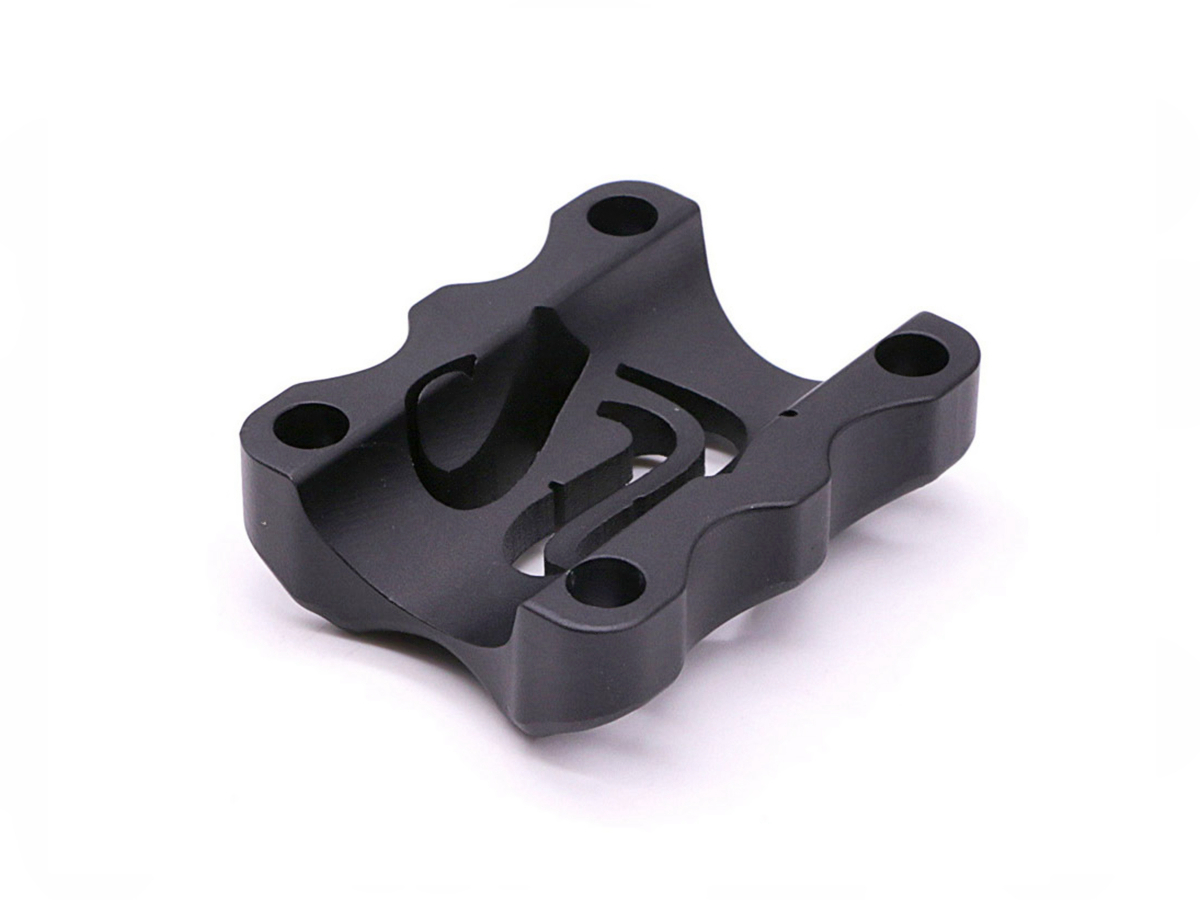Durable CNC Machining for High-Performance Industrial Equipment Parts
Introduction to CNC Machining for Industrial Equipment
In modern industrial applications, equipment parts must exhibit exceptional durability, precision, and consistent performance under demanding operating conditions, such as high mechanical stress, temperature fluctuations (up to 600°C), and exposure to abrasive or corrosive environments. Durable CNC machining offers precise manufacturing capabilities (±0.005 mm tolerance), crucial for producing components like high-load bearings, gearboxes, hydraulic system components, precision shafts, and structural supports widely used in industrial equipment, automation, and robotics.
Leveraging advanced CNC machining services, manufacturers ensure equipment reliability, extended service life, and optimal performance, helping industries maintain productivity and reduce downtime.
Material Comparison for Industrial Equipment Parts
Material Performance Comparison
Material | Tensile Strength (MPa) | Wear Resistance | Corrosion Resistance | Typical Applications | Advantage |
|---|---|---|---|---|---|
950-1100 | Excellent | Good | Gears, shafts, heavy-duty components | High strength, excellent fatigue resistance | |
510-540 | Good | Excellent | Lightweight structural parts, precision housings | High strength-to-weight ratio, corrosion-resistant | |
515-690 | Very Good | Excellent | Valve components, pump housings | Superior corrosion resistance, robust performance | |
360-400 | Good | Good | Fittings, valves, bearing components | Excellent machinability, good wear resistance |
Material Selection Strategy for CNC Machined Industrial Parts
Material choice for industrial equipment depends on factors such as strength requirements, wear resistance, corrosion exposure, and component weight considerations:
Heavy-duty components like gears and precision shafts requiring high tensile strength (up to 1100 MPa) and excellent wear resistance benefit significantly from 4140 Alloy Steel, enhancing durability and fatigue life.
Lightweight structural parts and precision housings that demand high strength-to-weight ratios and corrosion resistance utilize Aluminum 7075-T6, improving equipment efficiency and reducing operational weight.
Components exposed to aggressive corrosive environments, such as valve components and pump housings, frequently select Stainless Steel SUS316 for its superior corrosion resistance and robust mechanical properties.
Precision fittings, valves, and bearing components that require ease of machining and good wear resistance often choose Brass C360, which provides exceptional machinability and reliable performance.
CNC Machining Process Analysis for Industrial Equipment Parts
CNC Machining Processes Performance Comparison
CNC Machining Technology | Dimensional Accuracy (mm) | Surface Roughness (Ra μm) | Typical Applications | Key Advantages |
|---|---|---|---|---|
±0.005-0.01 | 0.4-1.2 | Complex structural parts, housings | Versatility, precision shaping | |
±0.005-0.01 | 0.6-1.6 | Shafts, cylindrical parts, valves | High accuracy, efficiency | |
±0.01-0.03 | 1.6-3.2 | Mounting holes, fasteners, fittings | Fast processing, reliable accuracy | |
±0.002-0.005 | 0.05-0.2 | Bearing surfaces, sealing components | Exceptional precision, superior surface finish |
CNC Machining Process Selection Strategy for Industrial Components
Selecting the right CNC machining processes for industrial equipment components involves evaluating the complexity, accuracy demands, surface quality, and component functionality:
Complex structural components, precision housings, and custom parts requiring tight tolerances (±0.005-0.01 mm) significantly benefit from CNC Milling, achieving versatile and precise shaping capabilities.
Cylindrical components such as precision shafts, hydraulic rods, and valves that require consistent dimensional accuracy (±0.005-0.01 mm) efficiently use CNC Turning, providing accurate and efficient production.
Mounting holes, connectors, and precision fasteners requiring moderate dimensional accuracy (±0.01-0.03 mm) employ CNC Drilling for reliable and rapid processing.
Critical bearing surfaces, sealing components, and high-tolerance mating interfaces demanding exceptional surface finish (Ra ≤0.2 μm) and ultra-high accuracy (±0.002-0.005 mm) utilize CNC Grinding, maximizing performance and longevity.
Surface Treatment Solutions for CNC Machined Industrial Equipment Parts
Surface Treatment Performance Comparison
Treatment Method | Wear Resistance | Corrosion Resistance | Max Operating Temp (°C) | Typical Applications | Key Features |
|---|---|---|---|---|---|
Excellent (Hardness up to HV 1100) | Excellent (~1200 hrs ASTM B117) | 550 | Gears, shafts, bearing surfaces | Superior hardness, fatigue strength | |
Good | Outstanding (~1500 hrs ASTM B117) | 300 | Aluminum structural parts, housings | Corrosion resistance, enhanced durability | |
Excellent | Exceptional (~1000 hrs ASTM B117) | 400 | Valves, pump components | Uniform coating, excellent corrosion resistance | |
Good | Very Good (~800 hrs ASTM B117) | 200 | General structural parts, casings | Durable finish, cost-effective protection |
Surface Treatment Selection Strategy for CNC Machined Industrial Parts
Surface treatments for industrial equipment components significantly enhance their wear resistance, corrosion protection, and durability:
Nitriding is ideal for high-wear components such as gears, shafts, and bearing surfaces, increasing hardness (up to HV 1100) and significantly enhancing fatigue resistance and durability.
Aluminum structural parts and precision housings exposed to corrosive environments benefit greatly from Anodizing, providing exceptional corrosion resistance and surface durability.
Valves and pump components requiring uniform corrosion protection and improved wear resistance frequently select Electroless Nickel Plating, ensuring extended operational life.
Powder Coating is a cost-effective solution for general structural components and protective casings, offering good corrosion resistance, aesthetic finishes, and durable surface protection.
Quality Control Standards for CNC Machined Industrial Components
Quality Control Procedures
Dimensional verification using Coordinate Measuring Machines (CMM).
Surface roughness measurements using precision profilometers.
Mechanical property testing (tensile, hardness, fatigue) according to ASTM and ISO standards.
Wear and corrosion resistance testing under simulated operating conditions.
Non-destructive testing (ultrasonic, magnetic particle inspection) to ensure structural integrity.
Comprehensive documentation and traceability compliant with ISO 9001 quality management standards.
Industry Applications of CNC Machined Industrial Components
Typical Applications
High-load gearboxes and precision bearings.
Hydraulic and pneumatic system components.
Precision shafts and mechanical linkages.
Structural parts for industrial machinery.
Related FAQs:
Why is CNC machining crucial for industrial equipment parts?
What materials provide optimal durability for industrial components?
Which CNC machining processes deliver the highest precision for equipment parts?
How do surface treatments enhance industrial component longevity?
What quality standards must CNC machined industrial equipment parts meet?

